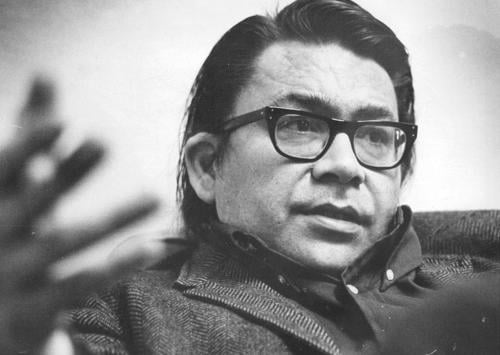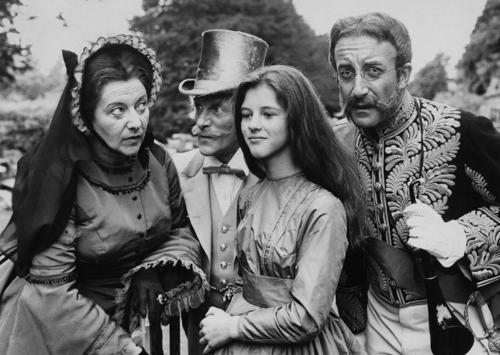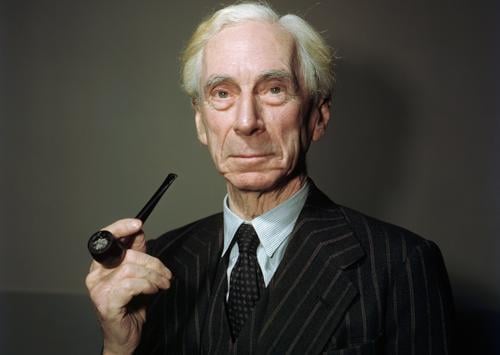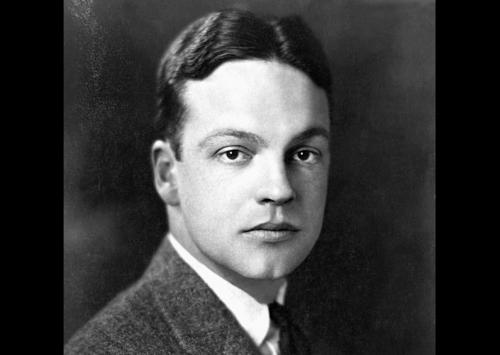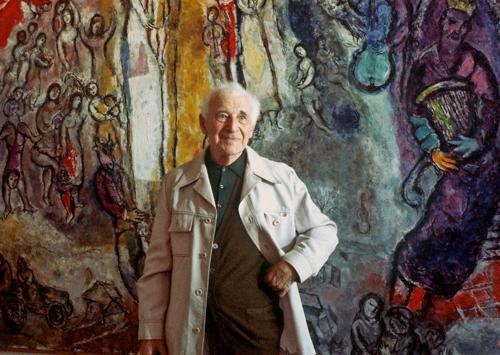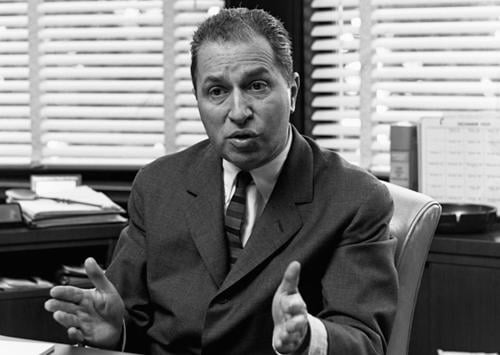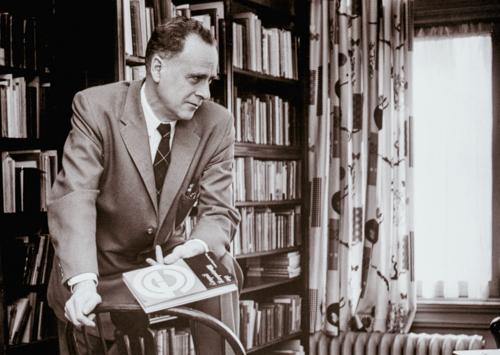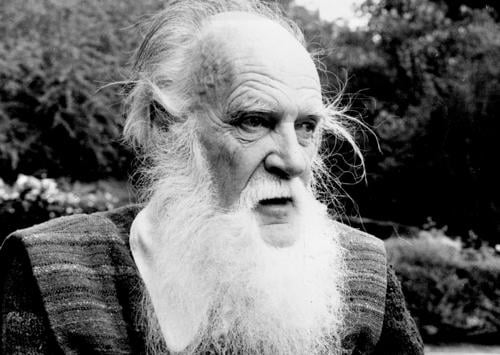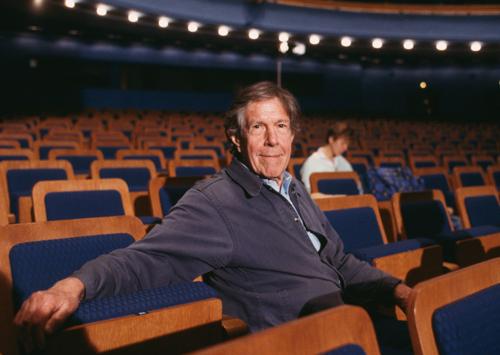Listen to New Voices on Studs Terkel our partnership with 826CHI-here! Read the Story
Showing 1 - 15 of 46 results
-
Vine Deloria discusses his book "The Metaphysics of Modern Existence"
Oct. 12, 1979 Vine Deloria discusses his book "The Metaphysics of Modern Existence", religion, ethics, Native Americans, Native American culture, and Native American history. Includes a previous interview with Vine Deloria at O'Hare Airport.
-
Through an interpreter, Marc Chagall discusses his approach to art and his views on people
1970 Professor John Nef explained that Marc Chagall came from an environment of nothing. From his dreams, Chagall created joy in his pieces of art. Nef lets the audience know that Chagall said he still has a lot of unfinished artwork to complete. The 3rd and last part of this program is a colloquy. Again, through another translator, Chagall’s words are translated. Marc and Valentina Chagall speak French.
-
Studs Terkel talks with Erich Lüth on his first hand experiences living in Hamburg through the rise and fall of Hitler ; part 1
1968 Erich Lüth discusses his experiences, observations, and accounts of life in Hamburg, Germany during the rise and fall of Hitler. He recounts how as a member of Parliament he brought in Hitler's, "Mein Kampf" and read portions aloud and was laughed at by his colleagues. He states they were blind to what Hitler declared in his book he would do and some are still blind by wanting to rub out their past, their history.
-
Studs Terkel discusses childhood, imaginiation, science, social history, politics, medicine and theater with Jonathan Miller in London, England
Jonathan Miller reminisces about his childhood in Regent Park, London and offers his opinion on philosophy and the changing English class structure with the loss of the Indian empire. His remake of "Alice in Wonderland" for BBC 1 is reviewed and he states he is most interested in the human imagination.
-
Studs Terkel discusses and presents a memoir of British philosopher, logician, mathematician, historian, writer, social critic, political activist and Nobel laureate Lord Bertrand Russell
Feb. 3, 1970 Studs talks of British philosopher, logician, mathematician, historian, writer, social critic, political activist and Nobel laureate Lord Bertrand Russell, and presents a recorded discussion with Lord Russell from December of 1961. Lord Russell speaks of a strong stance on nuclear disarmament, and the current climate of politics, science and society.
-
Representatives discuss the Center for Human Understanding ; part 2
May. 5, 1963 Representatives discuss the Center for Human Understanding (part 2 of 2). Center for Human Understanding conference in Washington D.C. Includes interview with [Raghav Heer]. Interviews [Chaumont Hosie]. Note: lengthy interviews in French (translated).
-
Professor Adolph Baker, Jurgen Hinze, Professor Richard Lewenton and Father William Wallace discuss science and politics; part 1
Jan. 12, 1971 Professors Adolph Baker, Jurgen Hinze, Richard Lewenton, and Father William Wallace discuss science and politics. The four professors explore question such as whether scientists be involved in political decisions. World War II and Vietnam War are used as examples by the scientists. An earlier interview with scientists Edward Teller and Albert Szent-Gyorgy is played.
-
Paul Schilpp talks with Studs Terkel
May. 20, 1965 Interviewing philosopher Paul Schilpp.
-
Mortimer J. Adler, American philosopher, educator & author discusses his book "The Difference of Man and the Difference it Makes"
1967 Discussing "The Difference of Man and the Difference it Makes" and the philosophical ideals of Mortimer J. Adler. Mr. Adler speaks of his idea that the difference between human and animal behavior is a radical difference in kind.
-
Milton Mayer reads and discusses his article, "Ill Met by Moonlight"
Dec. 31, 1968 Million Mayer, journalist, reads his article, "Ill Met by Moonlight" and discusses his thoughts on technology and automation replacing jobs and human interactions.he also talks about youth, non-violence protesting for change, and education.
-
Marshall McLuhan discusses a wide range of philosophical topics
Jul. 1, 1966 Marshall McLuhan discusses a wide range of topics including conformity, changes in entertainment media, cultural change, art and artists, originality in dance, reading and language, human interaction with nature, and technology. Recorded in front of a live audience at Kendall College, McLuhan takes several questions from the audience throughout the program.
-
Lawrence Weschler discusses his book “Mr. Wilson’s Cabinet of Wonder”
Jan. 22, 1997 Lawrence Weschler discusses his book “Mr. Wilson’s Cabinet of Wonder” and the Museum of Jurassic Technology. Weschler discusses the director of this museum, David Hildebrand Wilson, and the surreal and often humorous exhibits on display in the museum. Studs plays "Suite Anglaise No. 2 in A Minor: II. Bourrée 1 et 2" - Jean-Frédéric Neuburger.
-
Lanza Del Vasto discusses his book "Return to the Source"
1970 Philosopher and nonviolent activist Lanza Del Vasto discusses his work as a nonviolent activist and his book "Return to the Source." Terkel refers to del Vasto as "Shantidas" occasionally during the interview.
-
John Cage discusses his music, life, influences, and career
Aug. 13, 1992 John Cage discusses his music, life, influences, and career. Rebroadcast of an interview with John Cage to celebrate his life and what would have been soon his 80th birthday. Includes a clip of John Cage reading/ telling a story in 1969 to Studs Terkel.


